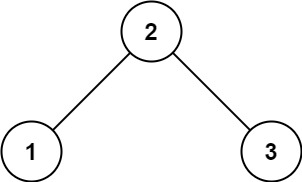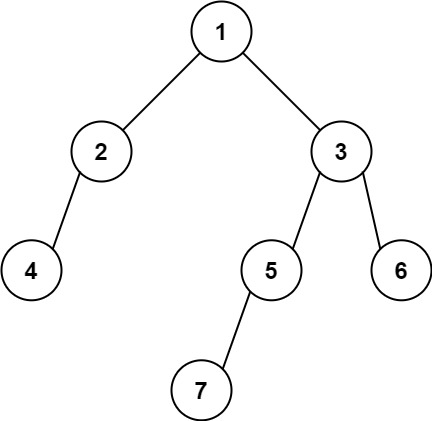2022-06-22
Description
Input: root = [2,1,3]
Output: 1Input: root = [1,2,3,4,null,5,6,null,null,7]
Output: 7Solution
Approach #0: BFS
Approach #1: BFS
Approach #2: DFS
Last updated

